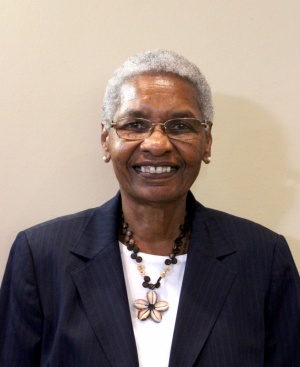No matter one’s political affiliation, Associate Justice Ruth Bader Ginsburg should be regarded a model of democratic citizenship. By this I mean, she upheld the civic responsibility we all have, which is to live and interact with others in ways that embrace and observe equality and democracy for all without regard to an allegiance to a political party. In this manner, she deliberately chose the law as her profession, then used her expertise to ensure that all Americans - female, male, Caucasian, African American, Hispanic, Jewish, Republican, Democrat, etc. - are treated equally, as prescribed by the U.S. Constitution. A pillar underlying her consideration of legal decisions was the Fourteenth Amendment which guarantees all persons equal protection under the law. In my view, one is hard pressed to describe such an approach to case decisions as either conservative or liberal. I, therefore, accept Madame Associate Justice Ruth Bader Ginsburg’s description of herself as neither liberal nor conservative.
Even before her appointment to the Supreme Court, as her biographies reveal, Ruth Bader Ginsburg not only successfully argued for the equal status of women but, in addition, sought legal redress for men so that they, too, are on the same legal plane with women. She prevailed here too. For example, she was successful in obtaining dependent status for the husband of a woman who was enlisted in the U.S. Air Force (Frontiero v. Richardson). Just as aggressively, she represented a widower with a child who was denied survivors benefits under the Social Security Act after his wife died. His application was rejected because the benefit, described as a “a mother’s benefit,” was based on the notion that a mother was more likely to be dependent on her husband than a husband on his wife (Calfiano v. Goldfarb).
However, the outpouring of respect and admiration Associate Justice Ginsburg is deservedly receiving from a broad spectrum of people should not be limited to her brilliance as a lawyer, the number of milestone cases she won on behalf of ordinary people, or the clear and reasonable language that characterizes her dissenting opinions to the court’s majority decisions. As an extraordinary citizen for democracy, the extent to which her legal acumen actualized the true meaning of equality cannot be overlooked. Not only were the male and female plaintiffs in her landmark cases accorded equal status to all other men and women, these cases, in addition, provide a lens for comprehending the current situation that is challenging America’s legitimacy as a democracy.
For instance, her dissenting opinion for Shelby County v. Holder foretold the problems regarding voting the country is currently experiencing. Specifically, the court’s decision in this case invalidated the provision of the Voting Rights Act that required jurisdictions with a history of voter discrimination to obtain “preclearance” in order to legislate any new elections or voting laws. The predictable outcome of this decision is happening now. More specifically, for numerous jurisdictions previously under “preclearance,” voting has become more difficult, particularly for poor and elderly Black Americans and Latinos. Situations that support this point include Republican-controlled legislatures in Texas, Alabama, Georgia, and other locations that passed voter identification rules that are two times as likely to interfere with African Americans’ access to the vote as white voters’. Then, there is the situation where election officials in Georgia shut down polling locations in many counties with large African American populations just before the 2018 gubernatorial election.
In this situation, Stacey Abrams was running to become the country’s first African American woman governor. She was running against Republican Brian Kemp, the incumbent secretary of state.
Considering the bitter and divisive partisan position that will determine the nominee for the next associate justice raises many “what if” questions. What if the current federal administration and lawmakers agreed that a central criterion for the nominee must be a non-partisan thinking individual who will use the Constitution as a binding framework to achieve a more perfect union? What if the leaders of our country agreed that a democratic nation requires structures that guarantee equal access to voting by everyone?
What American - male, female, Black, Hispanic, gay, poor, old, Muslim, conservative, liberal, etc. - who believes their 14th Amendment rights are being violated would not want a lawyer who is guided by Associate Justice Ruth Bader Ginsburg’s unwavering commitment to equal justice for all sitting on the Supreme Court?



















































